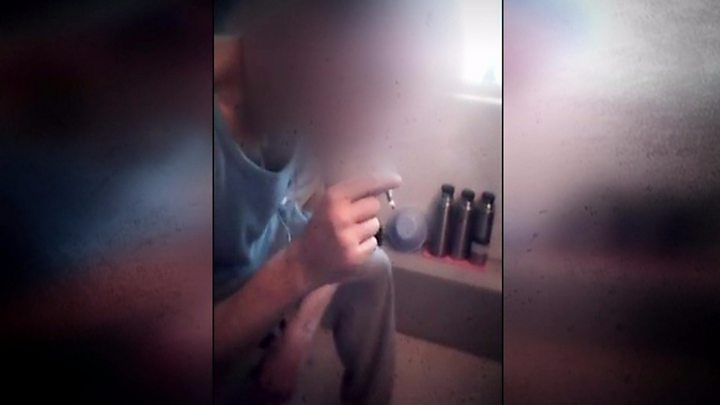
Image copyright
Getty Images
Spice is a laboratory-created cannabis substitute
An epidemic of a laboratory-created cannabis substitute in UK prisons is putting nurses called in to treat inmates at risk, union leaders say.
The Royal College of Nursing said it had members who had been left unwell after treating prisoners who had taken the illegal drug, known as “spice”.
One lost consciousness after inhaling the fumes and had to be taken to an accident and emergency unit.
And in some places 50 inmates were being treated each week, the RCN said.
It comes after a report last year by HM Inspectorate of Prisons raised concern over the widespread use of the drug.
It said inmates were sometimes not diluting it with tobacco, leading to serious medical emergencies.

Nurses and healthcare assistants are often the first on the scene when inmates need emergency care.
They are expected to enter cells before the smoke is clear.
But the union says NHS staff should be allowed to assess the danger of the situation before rushing in and called on the prison service to do more to combat the problem.
‘We’ve given care to 50 people in one week’
One nurse, speaking on condition of anonymity, said: “Recently we’ve had to give medical care to over 50 people in one week.
“Walking back after attending to a patient, I’ve sat in my car in the car park for 50 minutes after work so I feel confident enough to drive.”
RCN general secretary Janet Davies said: “Spice poses a serious threat to nurses, healthcare assistants and prison staff, whose safety and long-term health is being put at risk day in, day out.
“As dedicated health professionals, prison nursing staff are expected to offer high quality care, but they should not be expected to put their own wellbeing on the line to deliver it.
“I have heard some truly shocking stories of nursing staff passing out or being unable to drive after exposure to spice.”
A Prison Service spokesman said: “The best way to keep staff and inmates safe is to keep drugs out of our prisons.
“That is why we have trained more than 300 specialist drug dogs, introduced body scanners and intelligence-led searches and made it a criminal office to possess psychoactive substances in prison.”



